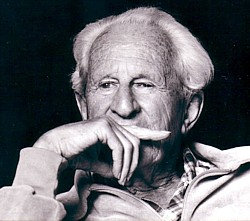
Inge Konik, "Revisiting The 11th Hour in Critical Ecological Times," in: Critical Arts: A South-North Journal of Cultural & Media Studies 32:2(Apr. 2018), 67-82. 16p.
To contribute to a consideration of the societally transformative potential of environmental films, a Marcusean-ecological framework is applied to Leila Conners Petersen and Nadia Conners’s The 11th Hour (2007). First discussed are Herbert Marcuse’s theorisations concerning the potential function of art to precipitate social change. What also receives emphasis is Marcuse’s and other theorists’ related stress on the importance of memory and time to critical thought. The amnesiac mainstream culture that prevents revolt and perpetuates social and ecological harm is challenged through various arguments advancing the necessity of remembering past horrors, non-industrial/non-capitalist times, and alternative futures in order to instigate the transformation of subjectivities and societies. Against this theoretical backdrop The 11th Hour is analysed, first considering published criticisms of the film, before critiquing the film on the grounds that while it evokes alternative registers of time in an environmentally progressive manner, it blunts its critical edge by proposing certain solutions to the climate crisis that dovetail with the ethos and accelerated time of the capitalist-consumerist status quo. Further reflections are then offered on the potential role of film in addressing the climate crisis, and on how an adjusted Marcusean-ecological frame might help to hone the critical edge of such environmentally-centred film art.